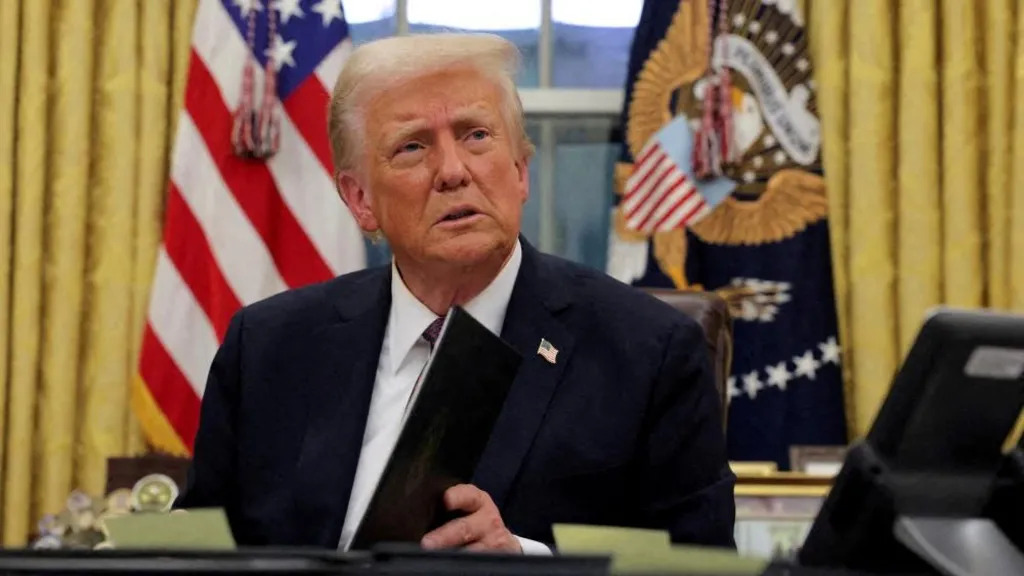U.S. President Donald Trump is escalating his economic strategy with sweeping tariffs on Mexico, Canada, and China, marking a significant shift from his first term. The new import taxes, targeting $1.4 trillion in goods, represent a high-stakes gamble that could drastically impact inflation, stock markets, and job security.
Trump, who has long touted tariffs as “the greatest thing ever invented,” is now tripling down on this economic weapon. However, many economists warn that his approach could backfire, worsening inflation and disrupting supply chains.
“This may be the biggest own-goal yet,” said Mary Lovely, senior fellow at the Peterson Institute for International Economics. “It’s a recipe for slowing down the economy and increasing inflation.”
Critics argue that the tariffs will raise consumer prices, particularly at grocery stores, gas stations, and car dealerships.
- Auto Industry Impact: A 25% tariff on Canadian and Mexican auto parts could raise the price of an average U.S. car by $3,000.
- Gas Prices: Oil tariffs could drive higher fuel costs in the Great Lakes, Midwest, and Rockies.
- Grocery Costs: With Mexico as the U.S.’s largest supplier of fruits and vegetables and Canada leading in grains and livestock, tariffs are expected to cause a slow but steady increase in food prices.
“There’s no way you can just levy this tax and the burden disappears,” Lovely explained. “We’ll see a slow pass-through—first in groceries, then at hardware stores, and eventually across the economy.”
Trump’s latest tariffs, coupled with expected retaliatory tariffs from affected countries, could cause:
- 1.5 percentage points drop in U.S. GDP growth in 2025
- 2.1 percentage points drop in 2026, according to EY chief economist Gregory Daco
- Higher borrowing costs if the Federal Reserve keeps interest rates high to curb inflation
Trump’s aggressive tariff stance has drawn criticism from economists, business leaders, and even conservative allies. The Wall Street Journal called it “The Dumbest Trade War in History.”
“Why burn your own house down?” asked Christine McDaniel, a former Bush administration trade official, noting the potential devastation to North American trade.
Meanwhile, financial markets remain on edge, with economists warning that a combination of rising prices and slow growth could create a stagflationary shock, exacerbating economic volatility.
While the White House insists tariffs won’t derail the economy, analysts remain skeptical. With supply chains at risk, businesses bracing for cost hikes, and inflation concerns mounting, Trump’s $1.4 trillion tariff strategy remains a high-risk gamble with uncertain consequences.
“The administration is playing with fire,” warned Joe Brusuelas, chief economist at RSM.

